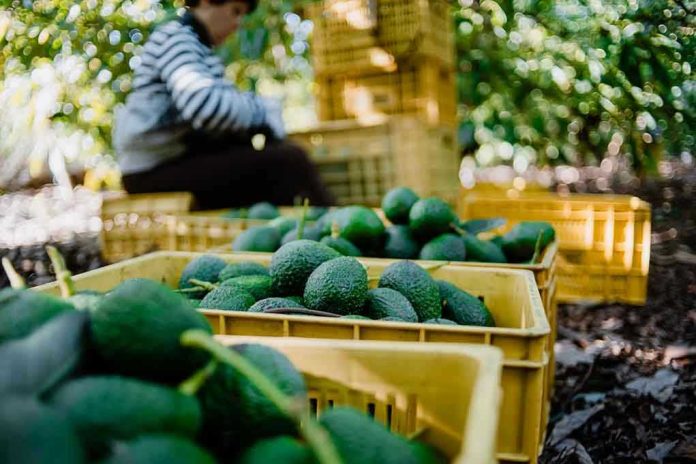
If you think eating an avocado a day is just a millennial fad, wait until you hear what it actually does to your body—and why cardiologists, grocers, and even environmentalists are locked in a love-hate triangle over this buttery green fruit.
At a Glance
- Daily avocado consumption can reduce your risk of heart disease and improve weight management.
- Avocados are packed with healthy fats, fiber, and nutrients, but calorie count means portion control is key.
- The avocado boom has triggered economic windfalls—and environmental headaches—in producing regions.
- Experts agree on health benefits, but debate lingers around sustainability and how much is too much.
The Global Rise of the Avocado: How a Fruit Conquered Breakfast, Lunch, and Dinner
Picture this: a fruit that’s been around since mammoths roamed Mexico, catapulted into global stardom by millennials and cardiologists alike. Avocados, once reserved for guacamole at the odd summer barbecue, are now a breakfast staple, a salad hero, and—for some—practically a personality trait. Their journey from ancient Mesoamerican orchards to the Instagrammable “avocado toast” craze is a tale of science, marketing, and a little bit of celebrity magic.
The reason for their popularity? A potent combination of creamy texture, mild flavor, and a nutrient profile that reads like a health food wish list: monounsaturated fats, fiber, potassium, and more. But there’s more to the story than just taste. After years of demonizing fats, dietary science has swung back around, and the avocado stands tall as the poster child for “good fat”—the sort your heart and brain adore, and your waistline may just thank you for.
But don’t let the avocado’s mellow vibe fool you. This fruit is at the center of a health and economic revolution, with a side order of environmental controversy and a dash of scientific intrigue. Welcome to the world where what’s on your toast could shape global trade, shape your arteries, and spark heated debates over brunch.
What Happens Inside Your Body When You Eat an Avocado Every Day?
Peer-reviewed studies from Harvard and large-scale clinical trials are rewriting the avocado’s resume. Eat an avocado a day, and you’re not just indulging in a creamy treat—you’re helping your body lower “bad” LDL cholesterol, raise “good” HDL cholesterol, and potentially reduce your risk of heart disease by up to 21% if you hit two servings per week.
These aren’t just nutritional sound bites; they’re the result of years of research from leading scientists like Frank Hu at Harvard, who calls avocados “nutrient dense with very little carbohydrates and high amounts of healthy fats and fiber.” The American Heart Association and nutritionists worldwide now recommend avocados as a part of a balanced diet for their ability to support weight management, cognitive function, and gut health.
But before you start spooning them straight from the skin, remember the caveat: avocados are calorie-dense. One medium avocado can clock in at over 200 calories, so moderation is essential—especially if you’re watching your waistline. The magic number for most? About two servings per week, according to the latest cohort studies. So, yes, you can have your avocado and eat it, too—just maybe not by the bucketful.
Avocados deliver a powerful punch of vitamins (E, C, B6, K), minerals (potassium, magnesium), fiber, and plant compounds that work synergistically in your body. The monounsaturated fats help keep your arteries flexible and your heart strong, while the fiber supports digestion and feeds your gut microbiota. Clinical trials even hint at benefits for memory and cognitive function, though scientists are still peeling back the layers on this front. The bottom line: avocados are more than just a trendy food—they’re a research-backed addition to a heart-healthy, plant-rich diet.
Winners, Losers, and the Avocado Economy
As you savor your daily avocado, spare a thought for the global forces in play. The avocado boom has transformed economies in Mexico, California, Peru, and Chile, turning growers and exporters into major stakeholders in the world food supply chain. The fruit’s popularity has spawned entire industries: restaurants crafting avocado-inspired menus, supermarkets vying to stock perfect specimens, and food brands racing to launch avocado-based products.
Everyone from public health organizations to celebrity chefs has a stake in keeping the avocado’s reputation sky-high. But the fruit’s meteoric rise isn’t all sunshine. Environmentalists raise red flags about water use and deforestation in avocado-producing regions, pointing out that the world’s appetite for avocados may be outpacing the land’s ability to keep up. Water scarcity, land degradation, and shifting trade policies are all part of the unfolding avocado drama. So, while avocados are a nutritional win for many, the story isn’t entirely green. As with any good thing, sustainability and common sense need to ride shotgun with enthusiasm.
This love affair with avocados has also changed social norms and dietary patterns, making the humble fruit a symbol of healthy living—and, for some, a source of culinary one-upmanship. From guacamole to green smoothies, the avocado’s reach is as broad as its fan base. But as debates about portion size and environmental impact continue, the avocado remains a fascinating case study in how food trends, science, and economics intertwine in the modern world.
What the Experts Really Think—and the Final Scoop on Avocado Moderation
Nutritionists and researchers are nearly unanimous: avocados offer unique and compelling health benefits, thanks to their blend of healthy fats, fiber, and micronutrients. Harvard’s Frank Hu and his peers point to the fruit’s positive effects on cardiovascular risk factors, weight management, and cognitive and gut health. The advice from the top? Enjoy avocados as part of a balanced, plant-rich diet, but don’t let their creamy charms blind you to calorie math. Moderation is key—two servings a week hits the sweet spot for most adults. As for the environmental concerns, experts urge consumers to stay informed and support sustainable sourcing where possible. The avocado’s story is still being written, as new research emerges on its health effects and the industry adapts to global demand. But one thing’s for sure: whether you’re slicing one into your salad or smashing it on toast, you’re part of a global phenomenon—one that’s as complex as the fruit itself. Stay tuned, and savor every bite.
Avocado lovers, rejoice—but maybe swap that third helping for a side of common sense. Your heart, your planet, and your taste buds will thank you.
Sources:
A Comprehensive Review of Hass Avocado Clinical Trials (2021)
Mission Health: Health Benefits of Eating Avocado (2024)
Harvard T.H. Chan School of Public Health: Health Benefits of Avocados (2024)









